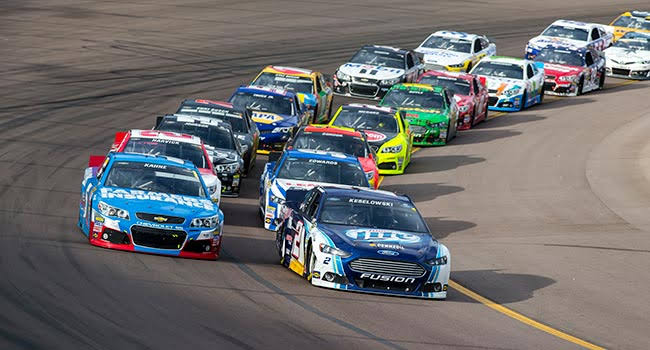NASCAR Under Fire: NASCAR’s Monopoly Threatening the Future of the Sport
NASCAR has been under increasing scrutiny, as both fans and industry insiders have accused the organization of monopolizing various aspects of the sport.
These allegations center on NASCAR’s control over major speedways, its dominance in merchandising, and its top-down approach to decision-making. This has led to criticisms that NASCAR is more focused on protecting its business interests than on fostering a competitive and open environment for teams and drivers.
A significant aspect of this perceived monopoly is the France family’s longstanding control over NASCAR, which dates back to the organization’s founding in 1947. The family not only owns a majority of the stock car racing entity but also controls the distribution of revenue generated from the sport. This has raised concerns that NASCAR’s structure inherently limits the bargaining power of teams, drivers, and other stakeholders.
One key point of contention is the charter system, introduced in 2016. This system was designed to give teams a more stable financial foundation by allowing them to own a guaranteed entry into each Cup Series race. However, critics argue that the system favors well-established teams while making it increasingly difficult for new entrants to break into the sport.
Smaller teams have also expressed frustration that the charters they acquire do not always yield the expected return on investment, further widening the gap between the sport’s elite teams and those trying to compete.
Moreover, fans have raised concerns that NASCAR’s monopolistic tendencies extend beyond its business structure. Many feel that NASCAR’s influence over race outcomes has become too strong, as there have been claims of manipulated finishes and questionable calls during races.
For example, there have been allegations that NASCAR officials have delayed throwing cautions or made rulings that seem to favor certain drivers, leading to fan frustration and suspicions of bias.
These criticisms have broader implications for the future of NASCAR. If teams continue to feel disenfranchised by the current power dynamics, it could lead to major changes within the sport. The teams, after all, are crucial to NASCAR’s success—without them, the show can’t go on.
Some have even drawn parallels between NASCAR and the NCAA, which faced legal challenges for its monopolistic practices, particularly around the treatment of athletes and the distribution of revenue. Much like the NCAA, NASCAR could find itself defending its practices in court if these tensions escalate.
The risk for NASCAR is that a legal challenge could find the organization in violation of antitrust laws, as was the case with the NCAA. If the France family doesn’t adjust its approach and negotiate fairly with the teams, they could potentially lose significant control over the sport they’ve dominated for decades.
This could open the door for more balanced revenue-sharing agreements, greater team autonomy, and a shift in the power dynamics within NASCAR.
In the meantime, the sport remains in a delicate position. Fan dissatisfaction and team unrest are growing, and if NASCAR doesn’t take steps to address these issues, it risks undermining the very foundation of stock car racing in the U.S.
















































